It All Adds Up — A Recap of Unexpected Connections 2020
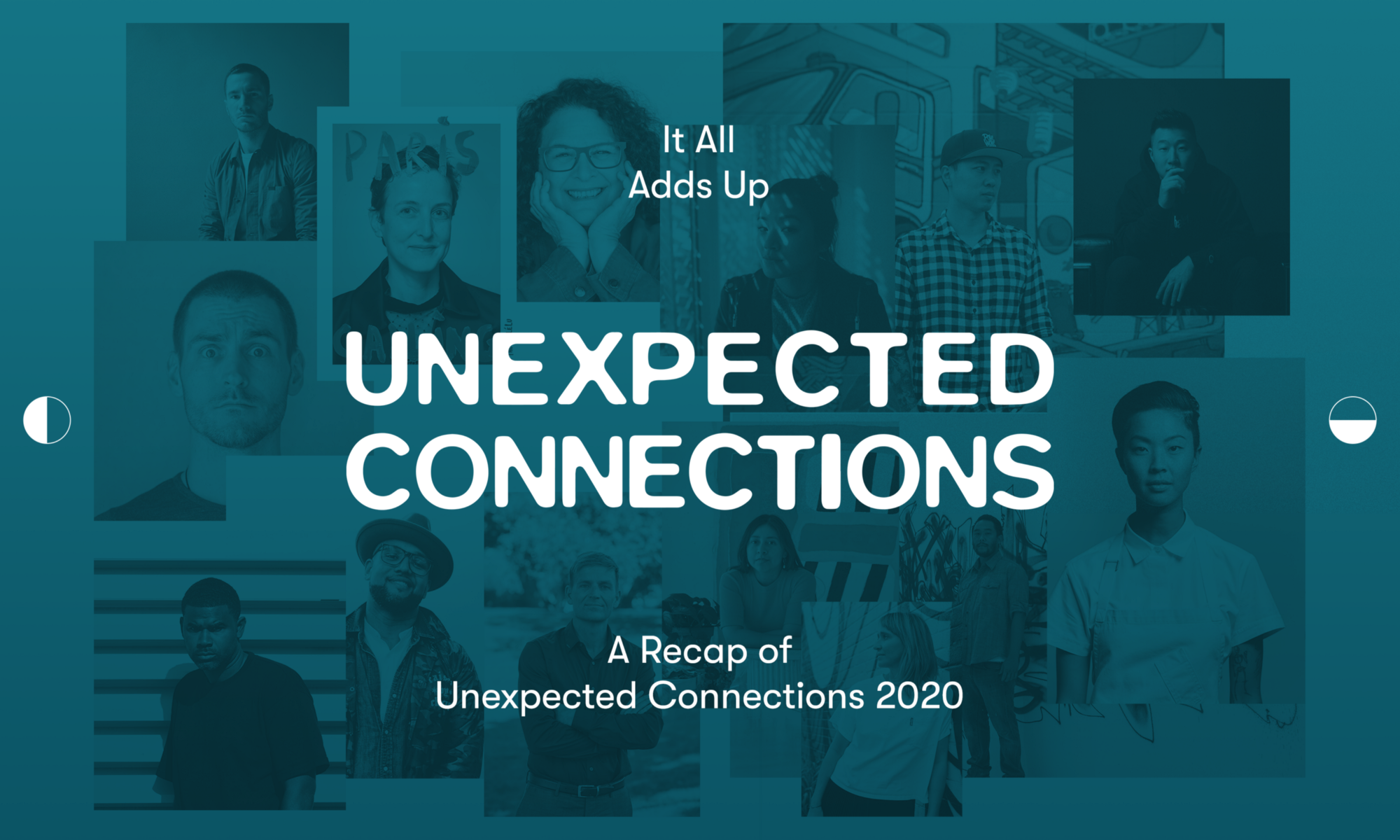
At the beginning of June, Intertrend and MAEKAN presented Unexpected Connections 2020 as a livestream event. Speakers from around the world gathered together in a virtual space, a convention center we set up for ourselves online, a conference open to anyone and everyone.
Two years ago, we came up with the idea for Unexpected Connections: an event series that brought together inventive people thinking across industries and making positive change. The name comes from our definition of creativity, which can be simply described as pattern recognition and more complexly considered to be a tangled web of nodes that we deconstruct.
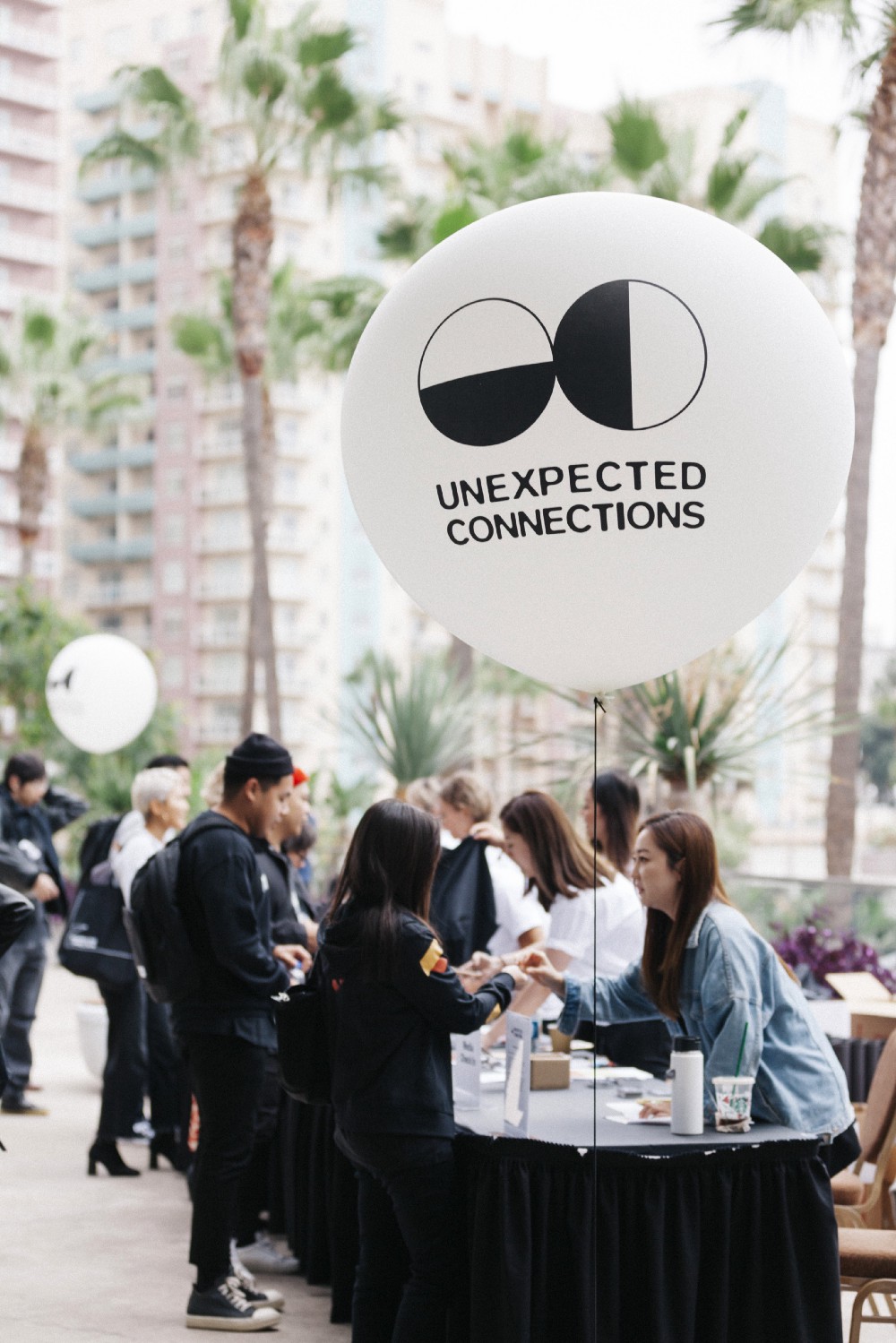
In 2018, the inaugural Unexpected Connections took the form of a physical event in downtown Long Beach that over 450 people attended to hear invited speakers, meet one another, and exchange questions and ideas in person. That format wasn’t possible this year, but we believed the same spirit could live in another medium.
We titled this year’s event “It All Adds Up”, recognizing that our individual actions often seem slight and insufficient, tiny pockets of light in what feels like overwhelming darkness. It is only when many of us pool our resources, efforts, attention, and stories that movements shift our lived reality. “It All Adds Up” is also an appropriate way of describing our process in putting UC 2020 together, a one day virtual creative conference that took form through many deliberate decisions, some large, some small. Each decision moved us towards our mission of gathering inventive multidisciplinary people invested in positive change; hosting conversations that become collaborations; sparking ideas that become movements; helping turn potential energy to reality.
We had wanted to take our learnings from the first Unexpected Connections and present another event with, hopefully, greater focus and impact on our creative community. Which is when, in March, we ran up against the first big question that demanded an answer: Was a physical event in the fall of 2020 the best way to fulfill our mission in the midst of a global pandemic?
Our answer was no. It was clear then that the more meaningful course of action was virtual and immediate, connecting people as we all struggled to adapt to the shape of our lives and offering financial assistance by making UC 2020 not just a conference but a fundraiser. There were challenges in organizing Unexpected Connections — not least of them being that we were a team on two different continents dealing with an ever-evolving pandemic while creating a seamless and engaging virtual livestream production that meant coordinating many individuals and moving parts. Yet, we trusted that there was something to be said that could be healing and helpful in this time.
Then, at the end of May as the George Floyd protests began in Minneapolis, we found ourselves facing another equally large question that needed an even more carefully considered decision: Was a fundraiser for Covid-19 relief the most urgently necessary action during monumental societal awakening to racial injustice?
Again, our answer was no. As pressing as pandemic relief was then and is now, our team and our invited guests all felt that what deserved attention, amplification, and resources was the Black Lives Matter movement. So we found ourselves shifting gears a second time. When I consider our course pivots to those that took us towards bringing positive change collectively through conversations, ideas, and energy, I think we chose the right forks in the road.
Our invited guests and our team put in the work to make things add up: emotionally through conversations, mentally through new ideas, and concretely through fundraising. And our over 3500 viewers contributed significantly to things adding up as well, asking thoughtful questions and donating generously, resulting in over $20,000 raised for the nine non-profit organizations and charities chosen by our speakers that provide Covid-19 relief and support the Black Lives Matter Movement. They are: Artist Relief, Black Lives Matter, Black Visions Collective, House of Ruth, Inner-City Arts, Loveland Foundation, MBK Alliance, Doctors Without Borders, and World Central Kitchen.
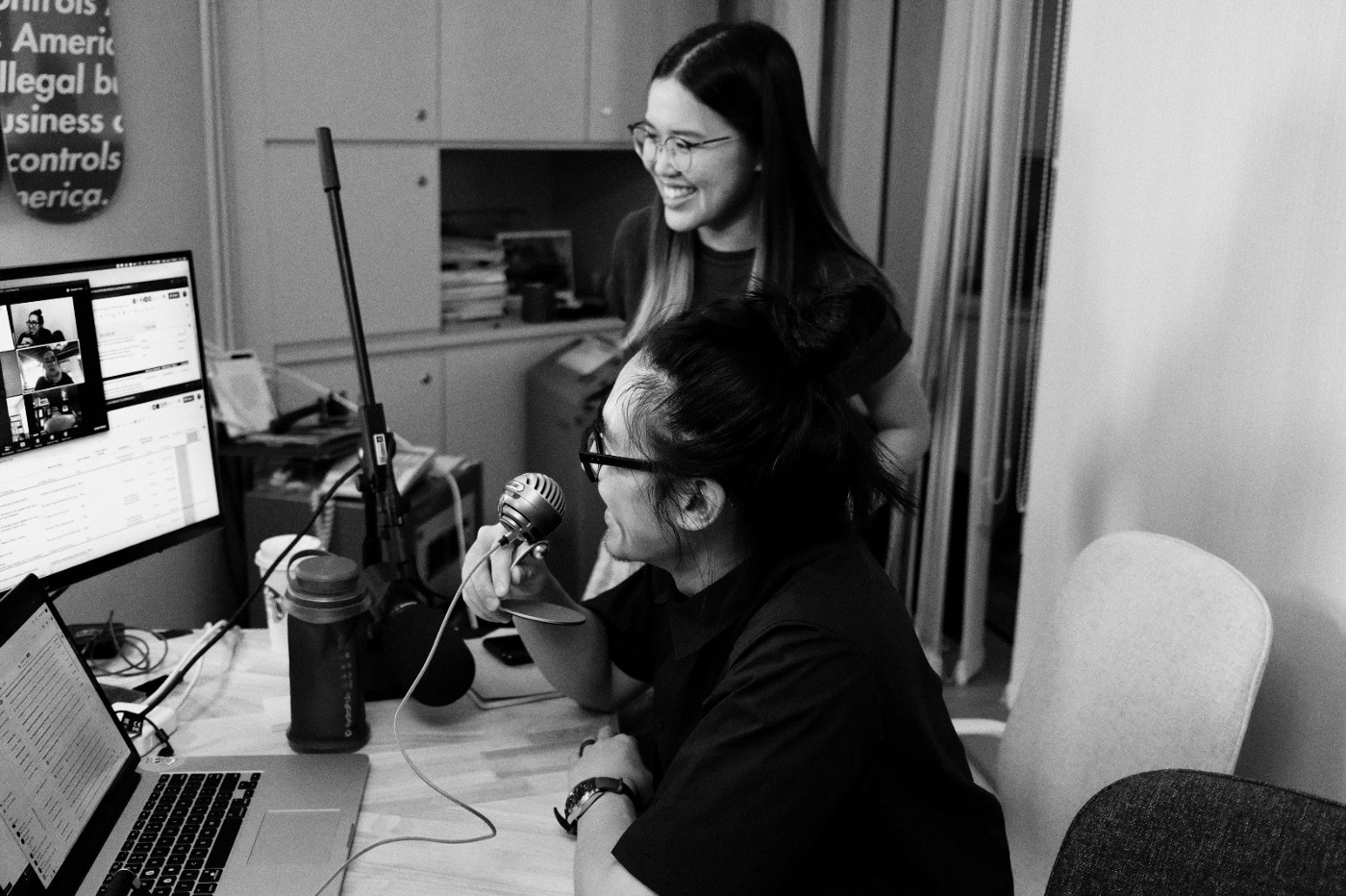
What has proven itself, after the event and upon reflection, is that the most compelling aspect of what we presented is this core belief: that sitting down together with people different from yourself with the willingness to be earnestly honest and attentively listening, turns up unexpected connections. I find myself still reflecting on the conversations I heard and applying learned perspectives to issues I face — I hope the same for you.
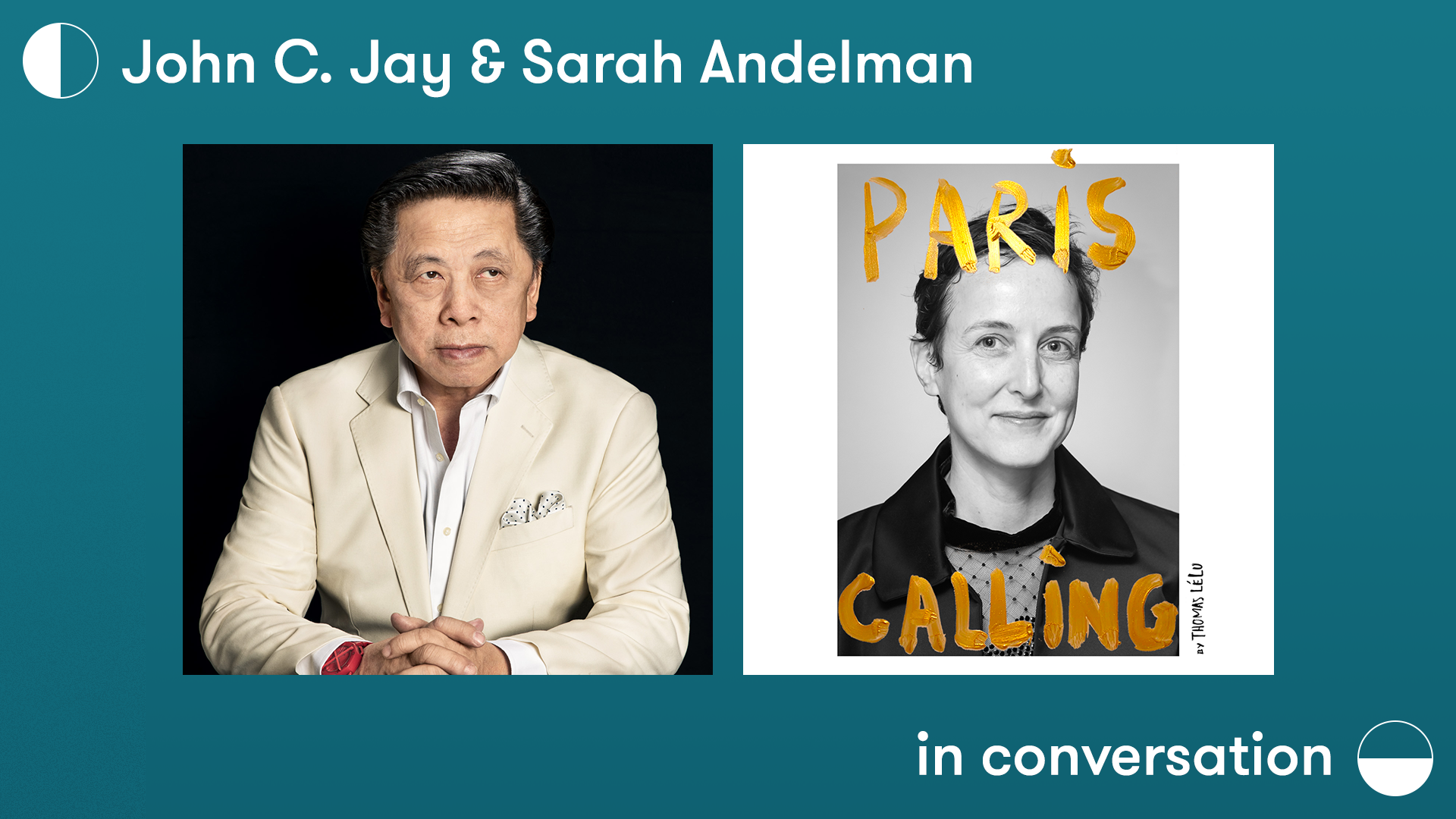
Evolving Creativity
John C. Jay, President of Global Creative for Fast Retailing, the parent company of Uniqlo, and Sarah Andelman opened UC 2020 talking about colette, the iconic store in Paris that Sarah and her mother started in 1997 and operated for twenty years before closing in 2017. In discussing the history of colette and some of her fondest memories, it became clear how much Sarah appreciated the process and the people, more than selling things or being one of the most well-respected retailers, though that was part of it too. Since closing colette, Sarah has established her consulting agency Just an idea, and John asked her for her thoughts on evolving as a person, creator, and businessperson. She said, “It has to be organic. We evolved without thinking, “We have to evolve.” And it’s contradictory. I would say we need to have goals, we need to have some values, you need to create your own path, but then, life is stronger and there are some accidents and they can be positive. My philosophy is that it has to be very organic, to not think too much about it, to not be too impatient, it will take the time it takes.” John responded to this by pointing out that Sarah’s superpower, one that we can all aspire to evolve to have, is the ability to create cultural exchanges and encourage empathy for different ideas.
“I would say we need to have goals, we need to have some values, you need to create your own path, but then, life is stronger and there are some accidents and they can be positive.” — Sarah Andelman on evolving creatively
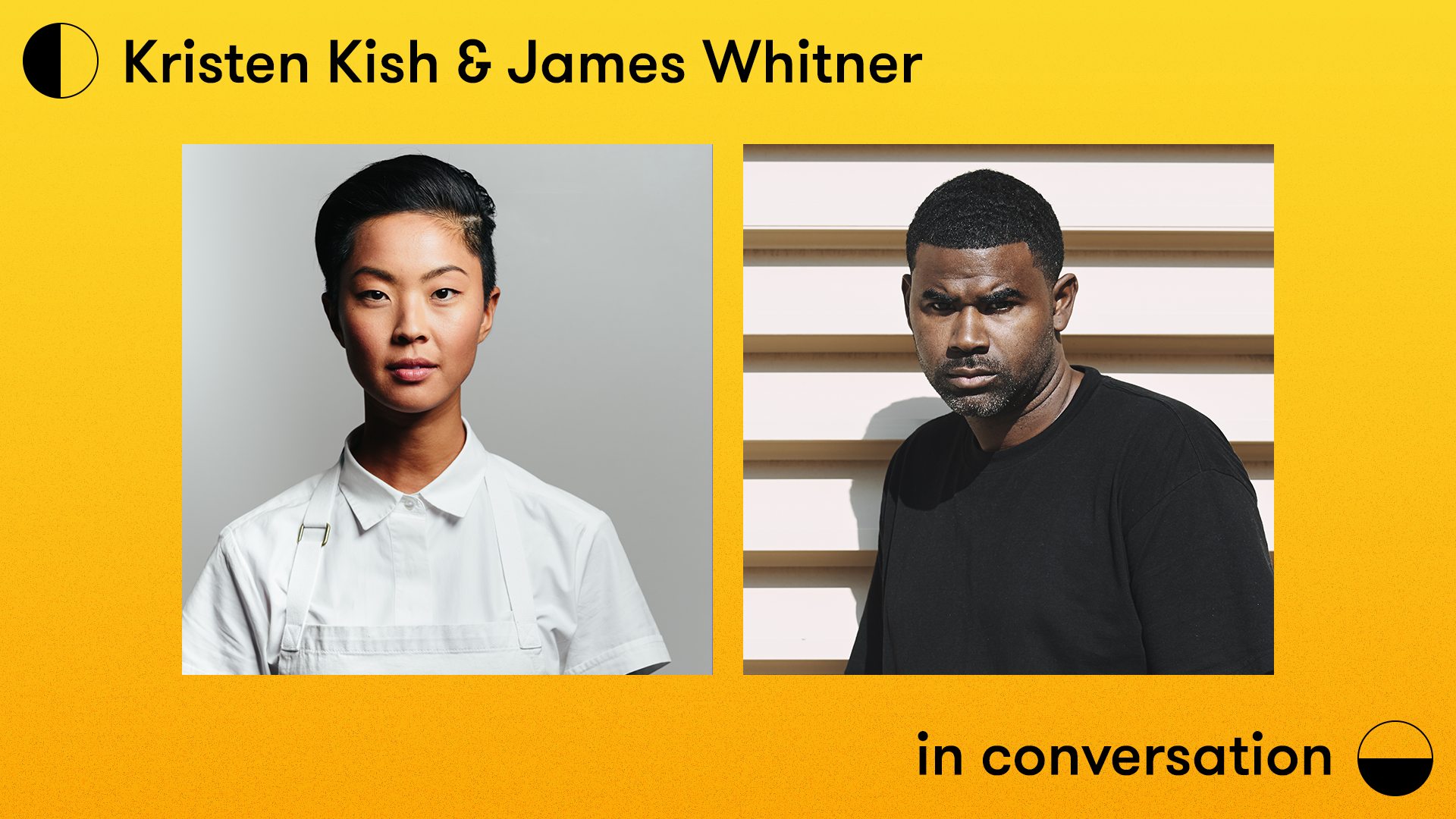
Without Community, We Are Nothing
Next, in a conversation between Kristen Kish and James Whitner, the meaning and importance of local community was elaborated on and emphasized. Kristen, Executive Chef of Arlo Grey, a restaurant she launched in partnership with Sydell Group, and James, the owner and operator of The Whitaker Group, which includes the retail and experience concepts A Ma Maniere and Social Status, spoke frankly about the necessity of having their teams as part of their growth and the requirement of developing what the face-to-face interactions of retail and restaurants will look like post-pandemic. Kristen put it this way, “There’s no way that you can sit on this island by yourself. You can be the greatest chef, you can be the greatest entrepreneur, you can be the greatest anything, but without community backing or without feeling like you’re part of something, as a whole, as a bigger entity than whatever a restaurant or a retail store is, without that, we are nothing.”
James later encapsulated something both of them share, “We both have a unique way of approaching the things that we love and approaching our passions. Passion can’t bleed through online transactions. I think the value that you get with both of us is we offer experiences with a personal energy that’s contagious.” Their conversation was, perhaps, the best proof of the original Unexpected Connections vision, that people with different backgrounds and experiences can always find something to connect over. Not only did Kristen and James combine their expertise together to teach us about operating establishments that contribute to their surroundings with heart, they ended their session with a promise to each other to bring their respective teams to each other’s establishments.
“Without community backing or without feeling like you’re part of something, as a whole, as a bigger entity than whatever a restaurant or a retail store is, without that, we are nothing.” — Kristen Kish
Additionally, affirming our decision to move forward with Unexpected Connections to present our invited guests with an opportunity to discuss current events if they felt like it, James responded to an audience question about how systemic change can be achieved. “It’s a mixture of accountability and, also, when they’re not getting accountability, people have to be willing to protest. I think the biggest thing that I’ve seen, not just in the U.S., but in Hong Kong and around the world, when people aren’t satisfied with their treatment by institutions, the only thing you can do is use your voice. And if you don’t use your voice, then things will never change, so peaceful protest is probably the best way to go. I think we’re a long ways away from change, but I think if you take the energy of youth culture, and you infuse it with the wisdom of people who have been around and have experience engaging within the systems in the right way, then you can get change. But, we all have to be willing to go the long haul with protesting until we get to a place where we’re comfortable and we can’t tire or become weary when things don’t. We’ve got to stay at it, we’ve got to keep pushing, because this is going to be a marathon, in the U.S. and outside of the U.S. It’s never as easy we would like it to be, so we’ve just got to keep pushing.”
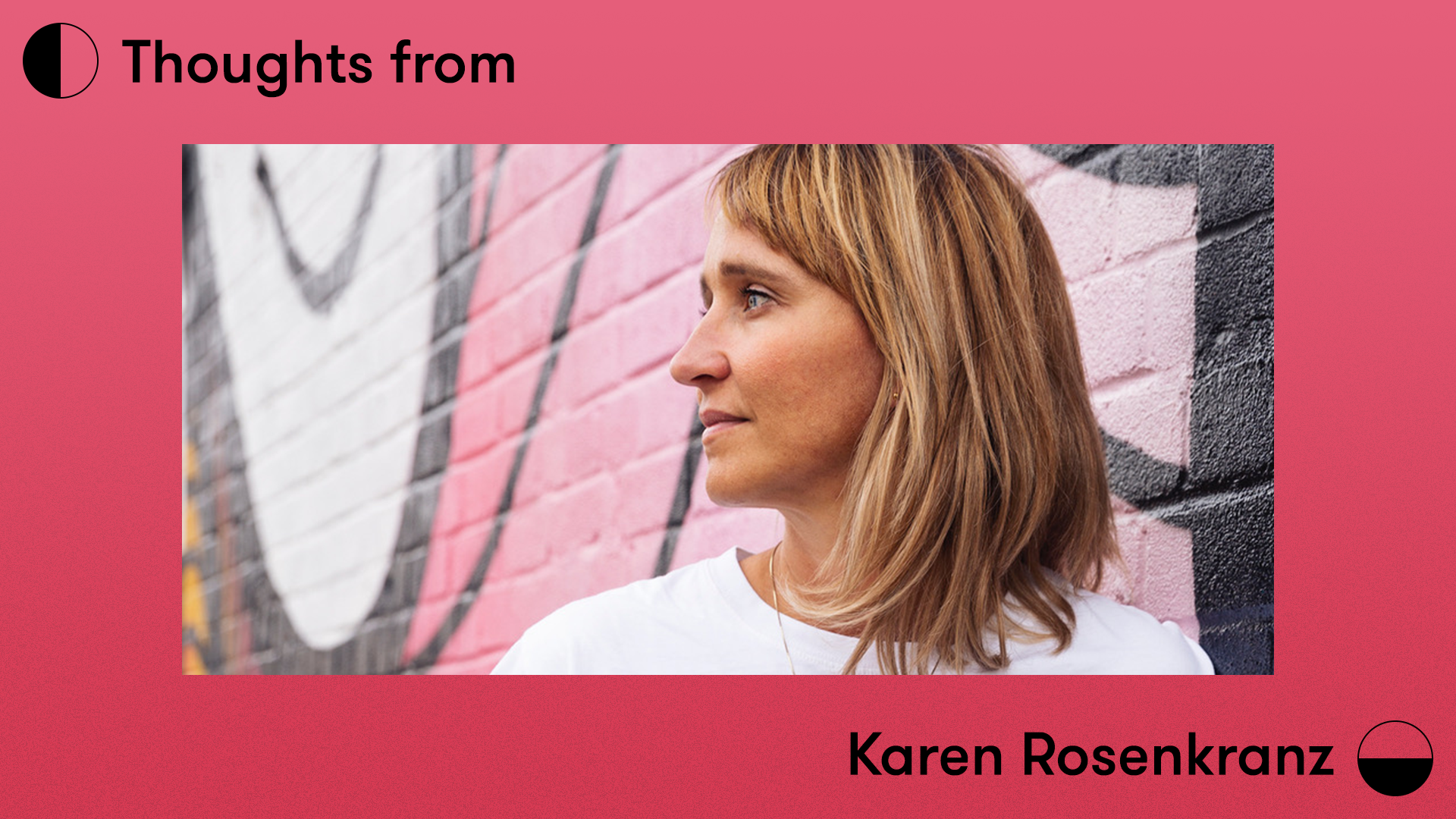
City Quitting
Our third segment featured a presentation by Karen Rosenkranz on city quitting. Karen, a trend forecaster, ethnographer, and author of the book City Quitters: Creative Pioneers Pursuing Post-Urban Life, shared stories from her book and followed that by talking about how she believes the trend will develop as a result of the pandemic. Karen observed creatives intentionally city quitting for these reasons: space, time, nature, and community — the first three being commodities that are scarce in cities but abundant in rural areas. In terms of her expectations for the future, she thinks there is a growing interest in the rural and a shift away from the preconception of the rural as being conservative. Increasingly, the countryside will be where people explore more radical ideas, find hybrid models of living that combine creative work with working on the land, and create new culture. An idea that was already taking hold was amplified by the pandemic. The pandemic, as Karen put it, “has brought many problems to the fore that we have with cities. They’re overcrowded, they’re overpriced, they’re polluted. The healthcare system is more easily overwhelmed. It has also made us more aware of the things that enable a life away from the city, things like remote working. And, of course, social media and the Internet, we can feel connected and be a part of something, like this event for example, when we’re physically apart. It’s become clearer to people that we can engage with culture wherever we are.”
“If this pandemic has taught us anything, it’s that we need each other. The relationships we have, the communities we build, are the most important things.” — Karen Rosenkranz
A recurring theme taking shape throughout It All Adds Up was the value of human connections — the ones that came through collaborations with artists and companies like for Sarah, the face-to-face interactions in retail and restaurants for Kristen and James, and stepping out of your bubble to get to know people you might be prejudiced against, as Karen advocates for. “If this pandemic has taught us anything, it’s that we need each other. The relationships we have, the communities we build, are the most important things. And in terms of quitting the city, I just hope to see more community-minded projects, where people find new ways to work together, live together with people of different ages, different backgrounds, and build a bridge between these two worlds. That means stepping out of your bubble of like-mindedness and out of your comfort zone. And one thing that might hold people back is the perception that provincial areas are less diverse and maybe rife with right-wing ideology, but I don’t want to generalize, many communities aren’t like that at all. But I realize it can present a problem, so it does take courage, but I think we have to reach out and try and engage with people who are different from us and become a bit less tribal. If we just operate within our own circles, we never change anything or bring people closer together.”
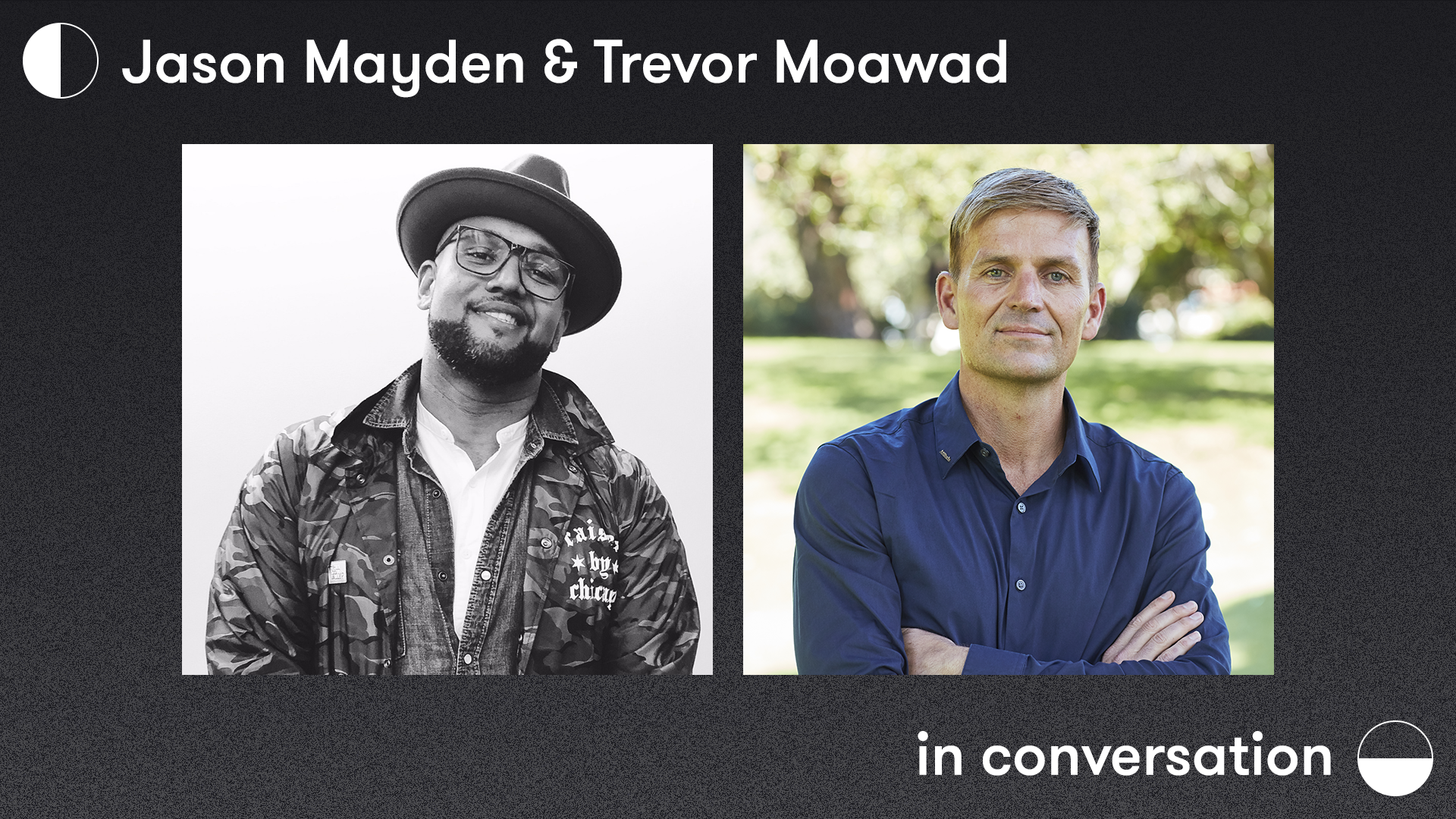
In considering the challenge of being alive in a digital age and striving for mental wellbeing, both Jason and Trevor emphasized the power images and words have on us. Regarding imagery and media, Jason spoke about how our digital age means that we live in a constant state of trauma and recommended that, “more than anything we need to do a better job of what images we allow ourselves to see. If we ingest junk, we can’t expect ourselves to perform optimally. Well, we’re ingesting junk mentally; we worry about what we eat but we don’t worry about what we see, which is the scariest thing ever.” Trevor talked about the often overlooked effect of verbalizing our thoughts. “When we say something out loud, it’s ten times more powerful than if we think it. So as we were in our earlier years at Alabama and Ford State [football], we realized by saying negative things out loud, we increased the probability by 40–70 times that they would happen.”
“There are things you can do, but I think there are a lot more things that if you just didn’t do, you’d help yourself more.” — Trevor Moawad
Trevor and Jason, besides sharing their experiences training themselves on how to best approach life, challenged listeners to do the same. Trevor flipped the standard messaging on its head, “What are five things you could not do that could change your life right now? Because everything in the self-help industry is, “Do this. Write this down. Meditate. Go on a hill. Buy this app. Look, LeBron did it.” And I think there are things you can do, but I think there are a lot more things that if you just didn’t do, you’d help yourself more.” Then towards the end of their conversation, Jason provided guidance on how to navigate our collective societal awakening to injustices, “We have to realize that we are an organism, we are connected to the planet together. We are all part of a large body. If one part of the body is hurting, we need to fix that so that we can then go to the next part of the body that’s hurting. So that’s how I’m looking at this moment.”
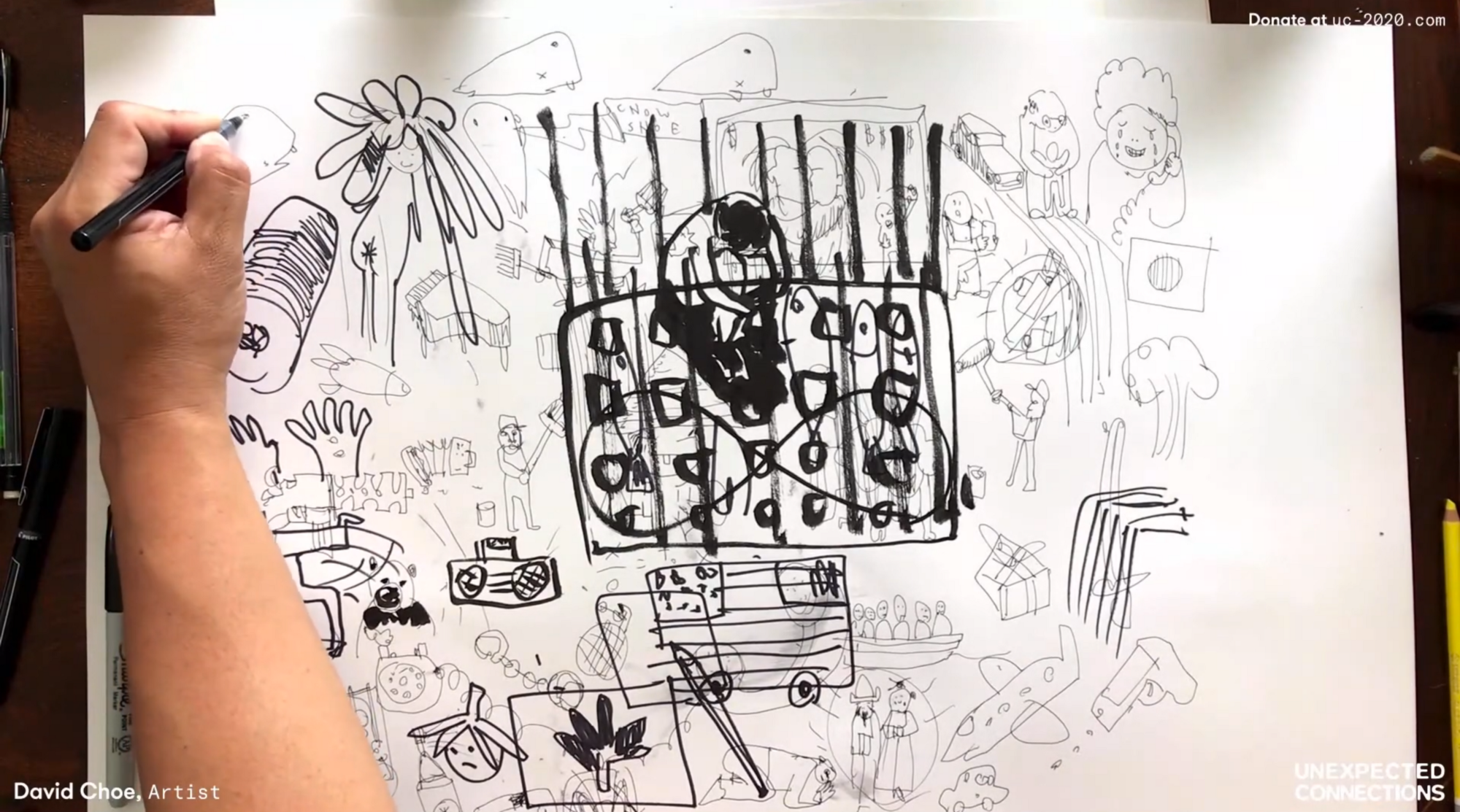
Beginning with an opening that shakes people awake, “Try to add this up for me. Try to solve this equation. If you need pen and paper, do it. I want to fuck my mom. I want to kill my mom. Just kidding. I don’t want to kill my mom. ‘Notice how he didn’t correct himself about the fucking part. He must want to fuck his mom!’ I’m exaggerating right now. I don’t want to kill my mom or fuck my mom, but I do have a love/hate relationship with her,” David goes on to try and make things add up. He goes through all the things that don’t add up to him: how the inmates he stayed with acquired the skills that they did (how did he wind up with a Korean breakdancer in a Japanese prison)? How is his mother standing in front of him after a meal he made for her and dripping with the most expensive jewelry known to man, that he’s gifted to her, and inflicting guilt in him? How did America go from seeing Asians as the perpetual foreigner and then celebrating selective achievements like Parasite? How does failing to do all of the things his parents asked of him ultimately result in them being proud of their son?
David asks questions that anyone reconciling with how their relationship with their parents has affected the decisions they’ve made in life will recognize in their own thoughts. He investigates his history, linking key events in his life from ages 4 to 44 in order to grow as a person — which is part of the answer he offers on how to make things add up for yourself.
“I can’t accept myself just as is. Just as I am right now in this moment is not enough. My love must be performance-based. Only when I achieve, perform, when I do something good, “Oh, he made a free throw! Oh, he knocked that guy out! Oh, his painting sold for 40, 50, 100 thousand dollars, a million dollars, 200 million, 500 million, sold!” that’s when people accept me. That hole will never be filled. That hole is bottomless. You can fill it with sex, drugs, money, achievements, cars, houses, goals… It’ll never add up. It’ll never be enough. More, more, more. The disease of more, the root of my addiction is more, not enough. I’m not enough. I don’t have enough. I need more, I need more, it’s not enough. Come back home, to yourself, to your heart. I am enough. You are enough. I am worthy. You are worthy. To add it all up, to get to that place where you’re like, “This makes sense. This is a life that I want to live”, with acceptance, gratitude, presence. I love myself, and not in a vain way, but in a truly genuine, authentic, I deserve to forgive myself. I deserve to be kind to myself. I have a hard time accepting love and kind words and it has to start here with me. And it starts by me growing myself up.”
To say to yourself, “I am enough”, is more than, as David demonstrates, saying the words out loud. It takes time and doing the work of reckoning with yourself in every way — emotions, memories, actions, decisions — to see your life as one that you want to live, one where you grew yourself up.
“Come back home, to yourself, to your heart. I am enough. You are enough. I am worthy. You are worthy. To add it all up, to get to that place where you’re like, “This makes sense. This is a life that I want to live”, with acceptance, gratitude, presence.” — David Choe
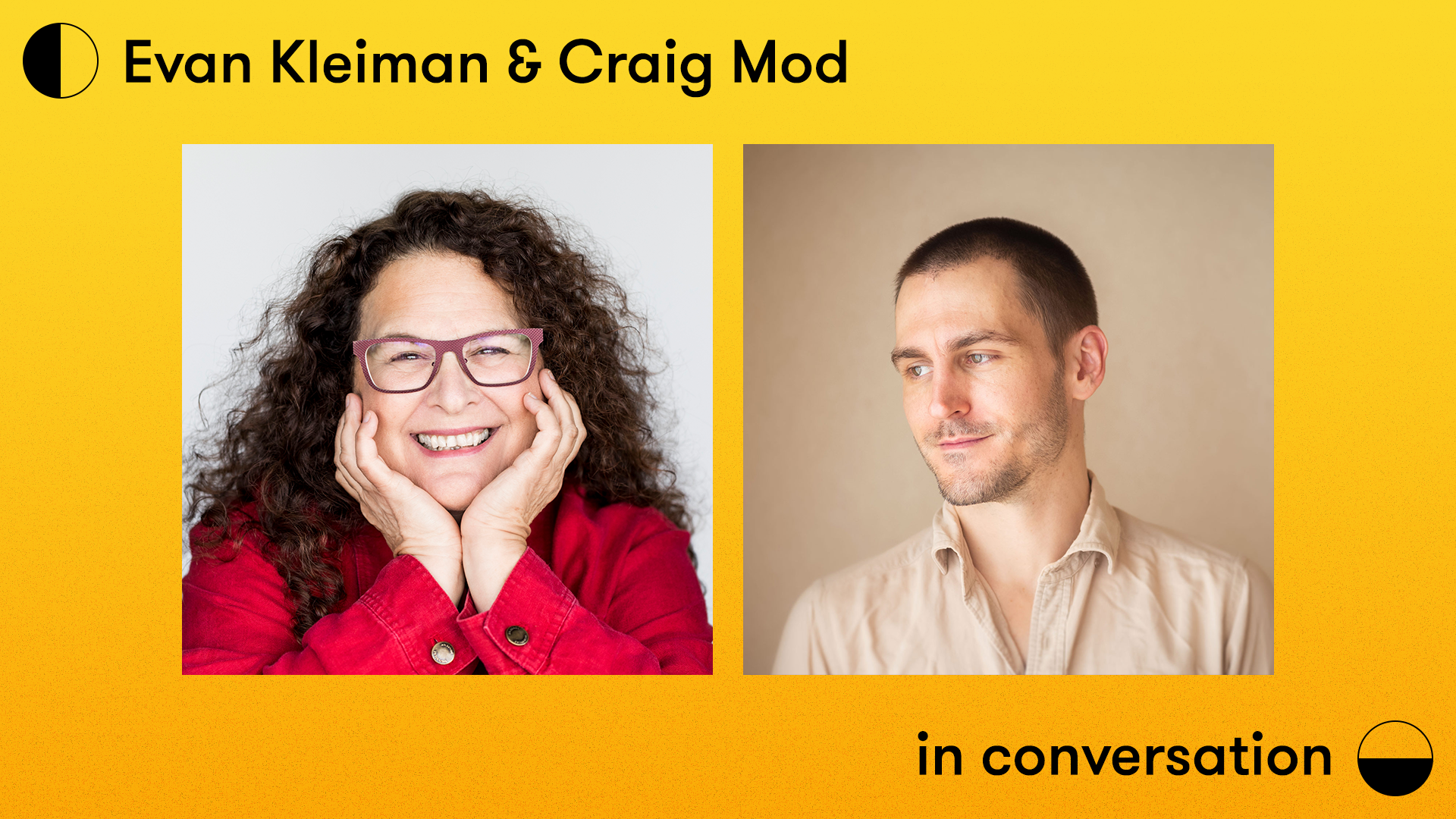
Driven by Curiosity
In conversation, Evan Kleiman, host of Good Foodon KCRW for 22 years, and Craig Mod, author, serious walker, and photographer, considered time in different forms: extended time, this present moment, divisions of our time, the start of a day and the ending of one, repetition and habit, cycles, and quietude.
Beginning the segment by talking about what has sustained their interests in food and walking, they reflected on the depth that comes over time. Evan said, “The journey into my subject is driven by curiosity and then it’s fed by the constancy of the practice. So it becomes like a hamster wheel with no end that has its own energy that keeps it going, because as you take in more, you learn more, and then your focus shifts and your curiosity expands.” Craig lived in Japan for thirteen years before he was invited on a serious walk, which led to him walking more and more for the next seven years; on the subject he said, “That first walk really opened my eyes to the fact that I knew nothing about Japan…And the more I did it, the more I felt my understanding and connection with the country deepening. And that was really exciting. It’s all in service to this desire to understand this place better and to connect with it in a deeper way.”
“As you take in more, you learn more, and then your focus shifts and your curiosity expands.” — Craig Mod
Both remarked on their choices to slow down in order to gain new perspectives. Part of slowing down involves developing habits and defining constraints: Evan described how cooking and doing the dishes are anchoring practices that comfort her in their repetition and physicality, while Craig, riffing off of the idea of repetition, pointed out that those practices are a kind of maintenance, which is a large part of creative life sometimes forgotten about, for example, how choosing to write for two to three hours a day is the only way to become a better writer.
Near the end of the segment, Craig and Evan spoke about their personal lives in order to explain what drives their interests. In relation to being adopted, Craig explained, “I’m very interested in what it means to be part of a group, what it means to integrate, what it means to be part of a family, and where those lines sit and when they’re crossed and how you can cross them and also when they’re uncrossable.” Feeling similarly adrift when younger as the only child of a single parent, Evan spent significant amounts of time in other people’s homes, “I just came to really feel deeply that every single household was its own culture. And I think that we keep seeing that story told over and over and over again through food now.”
This is a conversation that is difficult to quote briefly, because what comes across when you listen to them are the linking of thoughts, the weight of their reflections, and the sense that they valued this “appointment to think” (as Evan put it) highly.
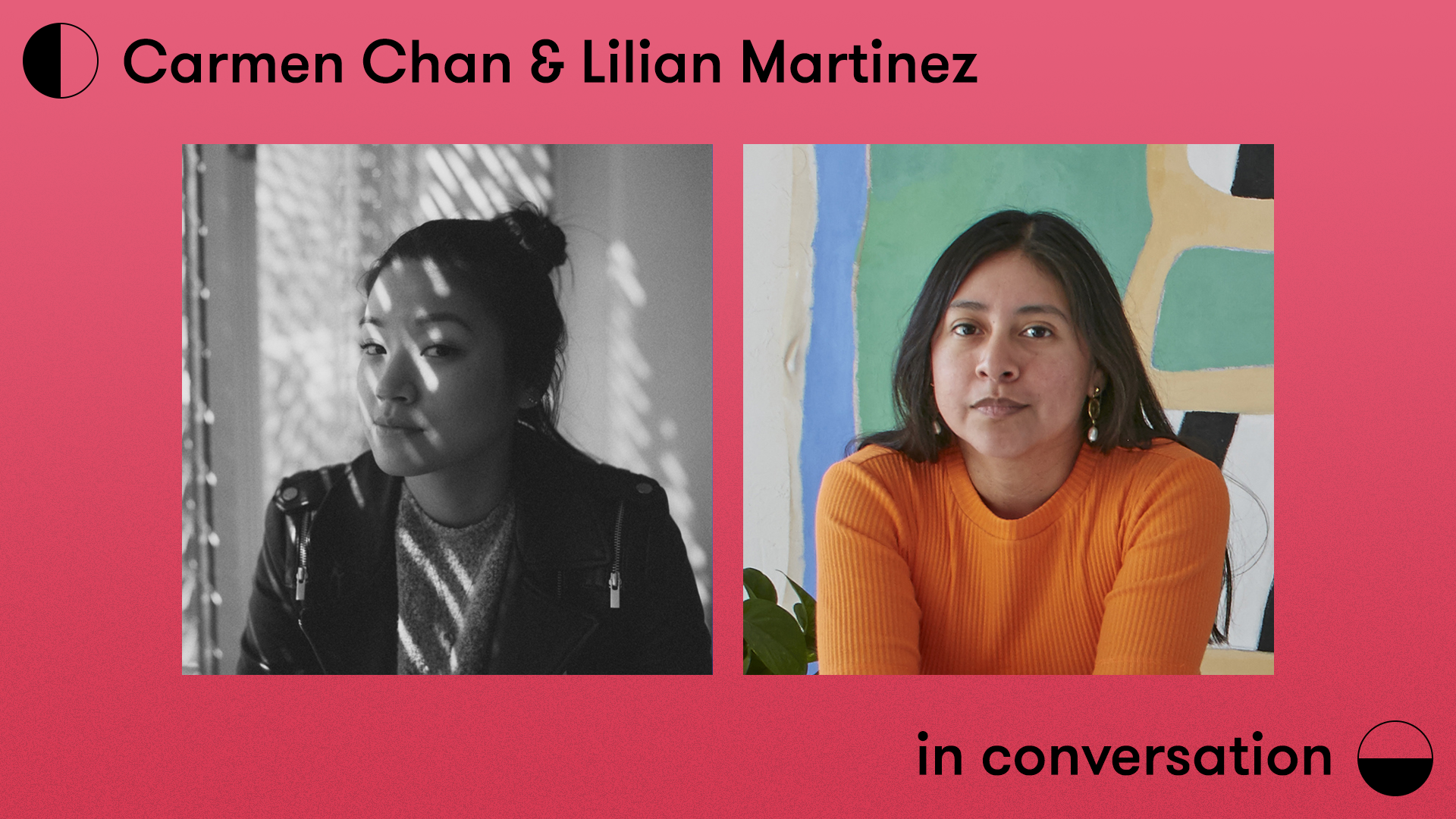
Comfortably Occupying Space
This year, photographer Carmen Chan self-published a book titled EXPOSURE that featured nine female artists including Lilian Martinez, Lisa Hanawalt, and Kristen Liu-Wong. She embarked on this personal project in response to the underrepresentation of female artists in the art world, hoping to provide a look into these artists’ processes and foster appreciation for their work. In this segment, she spoke with one of the featured artists, Lilian Martinez, whose work explores alternate histories for women of color, blends past and future, and mixes pop culture with classic references. The two conversed about Lilian’s process of creation, how she knows when work is resonant, the exploration of new mediums, and specific works of art.
In hearing Lilian speak about her art, indicating her intention and pointing out her references, it becomes clear that there are many more layers than what might strike a viewer initially. Talking about her work “Blue Jogger,” she says, “This piece is a body in leisurely movement so we go back to comfort, which is something I think about a lot. The space that she’s occupying, to me it feels balanced. I think a lot about the way that we occupy space in life and in my work. How do we comfortably occupy space that wasn’t made for us or made with us in mind?”
On the theme of “It All Adds Up”, which wove it’s way through all of the conversation during UC 2020, Lilian talked about how she reached this point in her career where she takes “informed risks” with confidence. “It’s a combination of all these moments where I’ve had experiences where I was thinking, “Should I do this? Should I do that?” Now I’m at a point where I can just invest in a project that I’m really excited about without that amount of pressure I felt before. It’s hard for me to pick out defining moments in my career or in my practice. Sometimes people will ask me, “What was the point where you knew this? Or that?” That’s so hard to say, it’s all just a combination of these very small moments. When I first started, if something exciting happened, I was like, “Okay! Things are going to change! There are going to be results.” But, you know, you achieve this goal and you just have to keep going.”
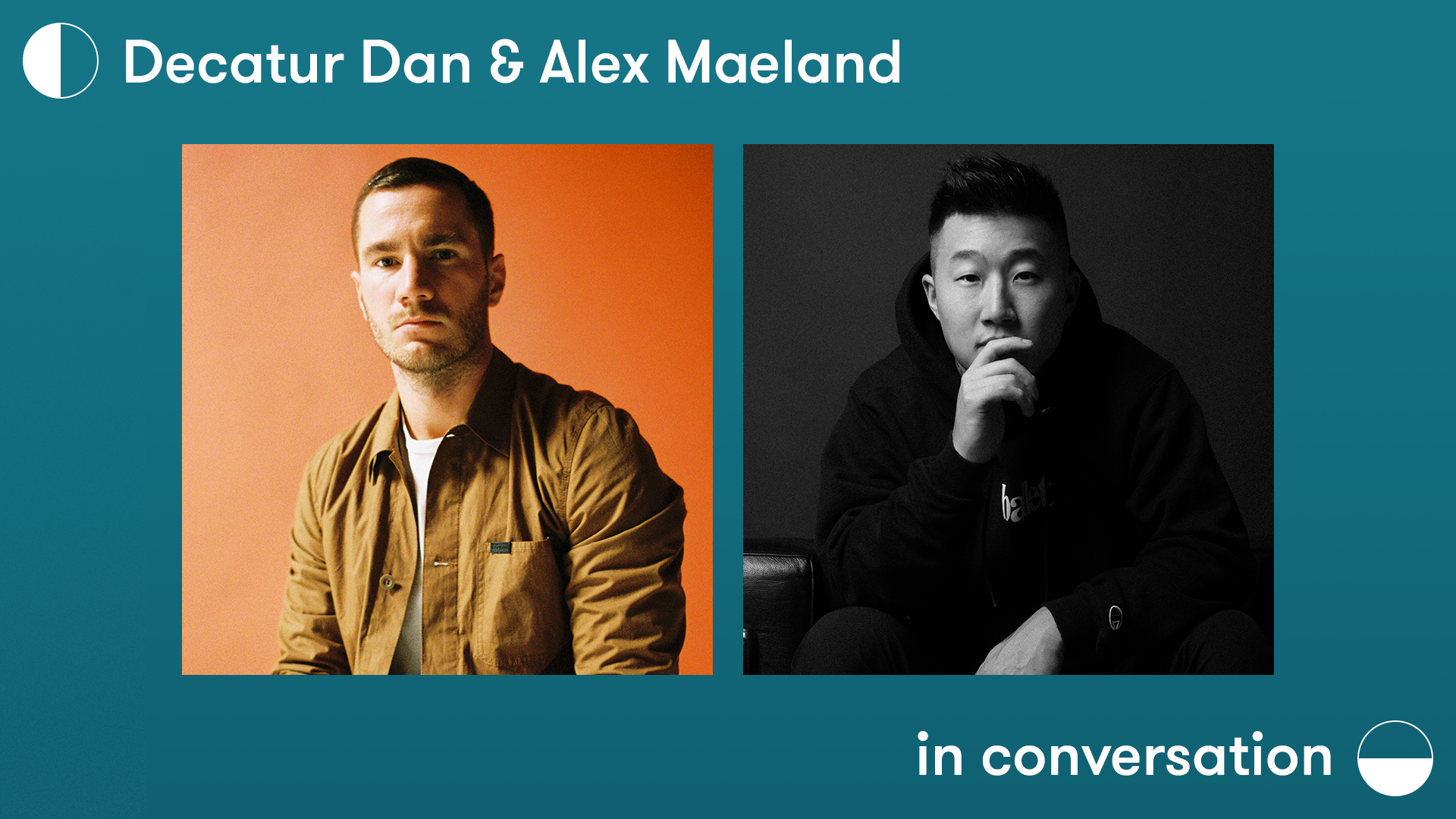
From Atlanta to Beyond
Decatur Dan, director, photographer and founder of the studio Where It’s Greater, in a way similar to Jasper, felt that he had a “moral obligation” to speak on the current events. He spoke about recognizing the reality of the issues in the United States and remarking on how in his journey, “the key characters, the key cornerstones or milestones have been opportunities that have been given to me from Black or Brown people.”
Starting out at Standard, a streetwear store in Atlanta, Dan quickly saw how much he loved the community the store fostered and nurtured the relationships he had with the clientele. His styling and art direction abilities were apparent to those customers, which launched him down a path of creating and distributing content for music producers, then evolved into a phase of directing and editing music videos. With hindsight, he sees his career as coming full circle — interests and abilities aligning to where he is now successfully running his own studio.
Looking introspectively, Dan responded to an audience question about what he’s doing for the Black community, ‘The biggest thing I’m doing is not being silent. I haven’t always been outspoken or vocal as it pertains to political or social events. But now, I recognize my responsibility as a white man. I definitely have to use my voice and my platform to speak up, because it’s not a Black people problem that’s going on, right now, this is a white people problem. I’m speaking out against racism. It’s not enough to be not racist anymore, we have to be anti-racist.”
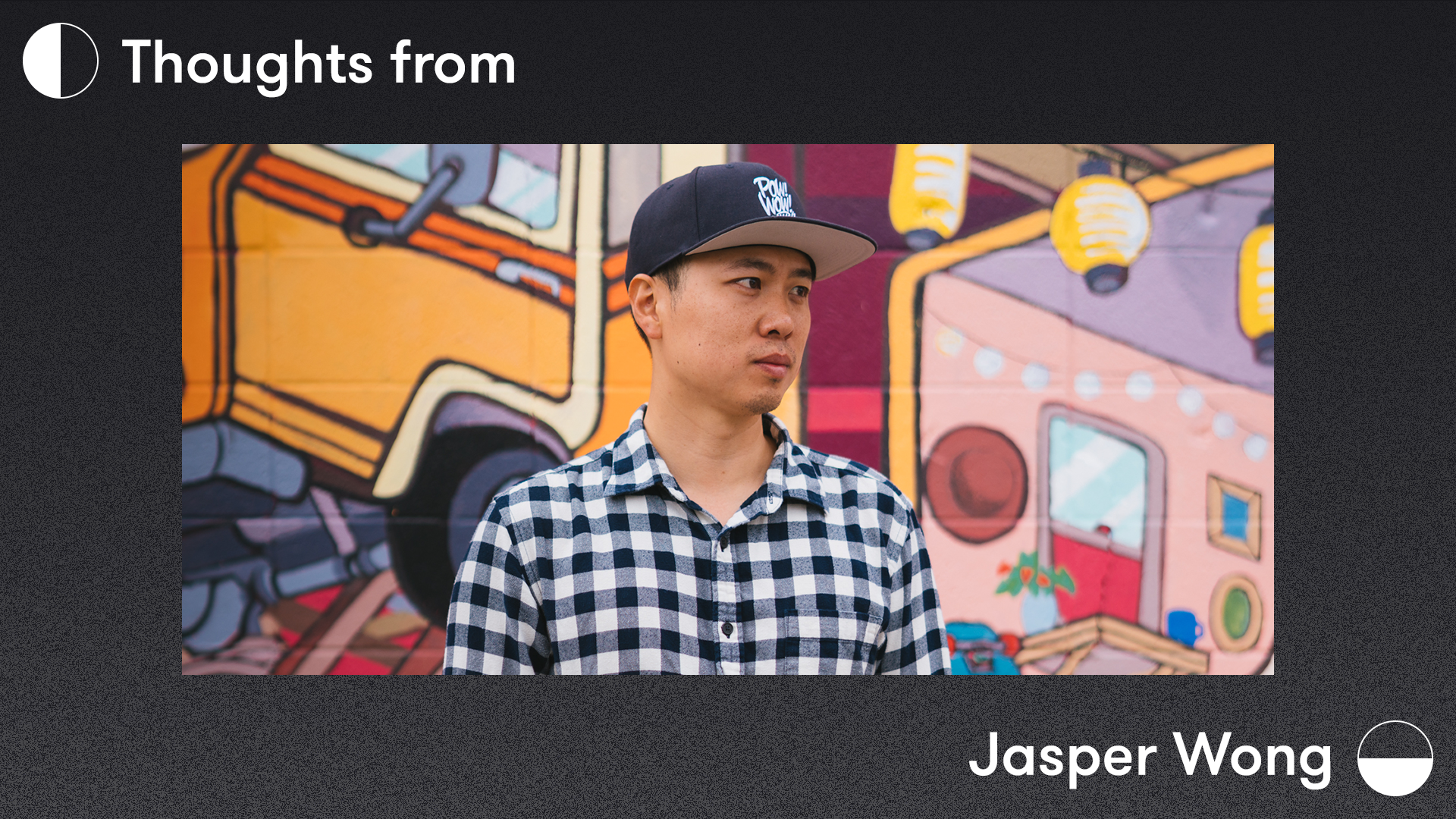
“These days, with everything that’s going on with the Black Lives Matter movement, the work that we’re doing takes on a different significance. What kind of work are we doing to add to the conversation? Or are we just trying to create a distraction? Does my work matter in the current state of the world? And what can I do to educate, be better, even if it’s within our own communities, within our own smaller communities where we live?” Jasper questioned himself, throughout his segment, but he also landed on answers that felt concrete. “I feel like as a curator, art director, and organizer, I feel like I’m doing the right work.”
Elaborating further, Jasper spoke about how he sees POW! WOW! as doing important work that uplifts neighborhoods, beautifies neglected areas, elevates local artists, creates a global community of resources, and gives the art back to the people. Within that, he recognizes the need to continue doing that work, but doing it with greater mindfulness about curation. “I’ll be the first to admit that sometimes you’re not looking enough outside of where you are and what you’re doing. All of us as creators, whoever does that. When you’re trying to figure out talks or who to write about, we need to look deeper.”
“What kind of work are we doing to add to the conversation? Or are we just trying to create a distraction? Does my work matter in the current state of the world?” — Jasper Wong
Besides speaking about his own emotions, doubts, and affirmations, Jasper encouraged others to start their own movements and communities for art and creativity. “I think we all have value beyond financial, beyond money, and sometimes we have to learn how to use that value. You have that much money in your bank account, but you also have all of who you are as a person and you have a community of your peers and that is vastly, sometimes, more valuable. Then, how do you utilize that?”
What’s Next?
We see Unexpected Connections as being more than a one-day event. It’s an event series with programming, whether physical or virtual, but it’s also a network of people, ideas, and yes, of course, connections. Kristen and James inviting each other to their respective restaurant and retail establishments in Texas; Evan asking Craig to come onto Good Food to talk about kissaten and pizza toast; those are literal and immediate examples of connections that were made over the course of the day, but there are abstract, forming, and solidifying connections between the different people involved with UC 2020, and within our own minds. We believe those connections will lead to positive change, collaborations, movements — potential energy turning into reality.
To turn once again to “It All Adds Up”, hearing individual sentences might not dramatically change lives, but repeatedly hearing different people speak about similar life lessons learned and approaches to challenges can show us our own ways forward. And having the spark of an idea won’t be sufficient to launch someone into a new phase of their life, but choosing to commit to habits built upon that idea might. “It All Adds Up” is true for the funds we raised, the conversations we heard, and our actions everyday. Here’s to us collectively adding things up for ourselves and for the world we want to see.